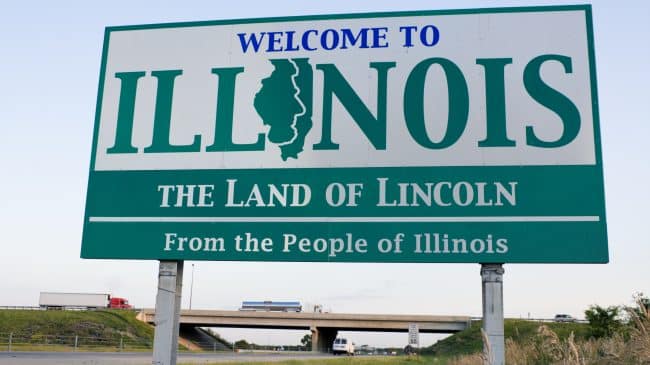Last year, the Illinois Lottery awarded a 10-year, $2.2 billion contract to Camelot Illinois—a subsidiary of multinational gaming giant Camelot Global—to manage lottery operations beginning January 2018. The move comes after the earlier-than-expected ending of its first private lottery management agreement, with Northstar Lottery Group, a relationship mostly defined by conflict since its start, in spite of some improvements in lottery finances.
Earlier this fall, the Associated Press reported that Camelot is seeking to increase annual lottery sales to $4 billion, which would produce more than $1 billion annually for schools by the final years of the contract. Camelot also anticipates paying out $23 billion in prizes over that time. Camelot’s revenue enhancement plans rely at least in part on investing $15 million to revamp retail displays and use technology such as a mobile app to market online.
In 2011, Northstar outbid Camelot for the deal because Northstar provided “more modest” net lottery revenue targets. The lower the annual net revenue targets are, the higher the likelihood of meeting those targets, which increases the likelihood Camelot would receive extra payments from the state. In this current deal, Camelot offered even more modest annual net income targets than Northstar did in 2011.
Altogether, the new deal with Camelot includes a $25 million annual base management fee (higher than the Northstar fee) and incentive bonuses for exceeding pre-determined net revenue levels. Camelot is eligible for incentive bonuses by increasing lottery proceeds slightly less than 2 percent each year. As lottery profits rise, the bonus grows into different tiers of possible gain, with higher lottery profits resulting in higher percentage bonuses—from 17 percent of the first $18.7 million in profits after meeting the 2 percent target, to 27 percent of profits in exceeding roughly $50 million–$180 million above the target. Similar to Northstar’s arrangement, the profit tiers increase each year, which means Camelot will have to keep increasing the lottery’s profits in order to get a portion of those profits back.
If the lottery’s profits do fall short, the contract permits the company—as with the Northstar deal—to cite external factors caused by the state as a reason for non-performance. And this leads to an important lesson both parties need to consider as they walk into this new partnership: communication is critical to success. As discussed in Reason Foundation’s Annual Privatization Report 2015, communication between Northstar and the state were unstable from the outset of their contract. As one example, several years into the contract, both parties had yet to reach agreement on final annual net revenue figures from the first year of the contract.
And with regard to contract provisions allowing the private manager to cite state actions as a factor behind underperformance, communication is key. Northstar used similar provisions to argue their net revenue targets should be adjusted down because of issues caused by the state, which led to a controversial battle for years, with the state claiming at one point Northstar owed $20 million for failing to meet new revenue targets. This battle eventually led to the state attempting to fire Northstar less than halfway through its 10-year contract. In November 2013, Crain’s Chicago Business reported that Northstar’s new keno-style game was prevented by state actions. Such actions were another justification for requesting the lowered adjustment of profit targets.
Contracts, like all relationships, are two-way streets, and both sides need to hold themselves accountable for their own failures. For its part, if Illinois doesn’t repeat the failure and mismanagement of client-vendor relationships with Camelot as they did with Northstar, then perhaps Camelot will be able to successfully implement its plan and sustainably enhance lottery revenues in a state facing massive fiscal challenges.
